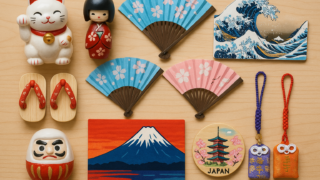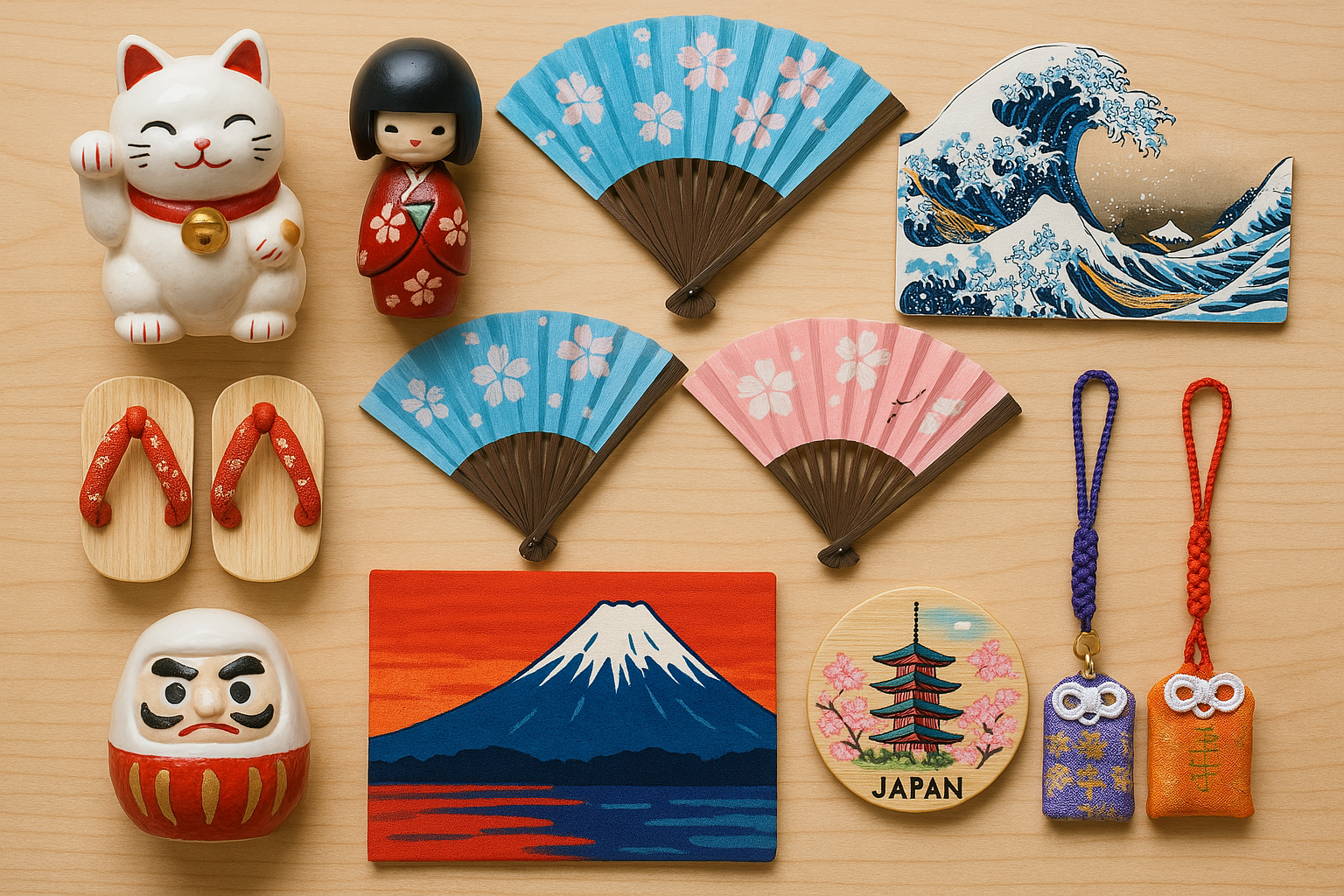- Introduction: Why Asakusa is a Must-Visit for Souvenir Shopping in Japan
- Top Souvenir Shops in Asakusa You Shouldn’t Miss
- Popular Asakusa Souvenirs and What They Symbolize
- Tips for Shopping at Asakusa Souvenir Shops
- Conclusion: Take Home a Piece of Japan from Asakusa
Introduction: Why Asakusa is a Must-Visit for Souvenir Shopping in Japan
Asakusa isn’t just famous for its ancient temples and rich cultural heritage—it’s also a paradise for souvenir hunters! Imagine stepping into a bustling marketplace filled with unique, handcrafted items that give you a true taste of Japanese culture. Asakusa’s souvenir shops are like a treasure chest, offering everything from traditional Japanese fans to quirky kitchen gadgets. It’s the perfect place for travelers to find a little piece of Japan to take home. Whether you’re a foodie, art lover, or just in the mood for something special, Asakusa has something to make your shopping experience feel like a grand adventure.
What Makes Asakusa Special for Tourists
Asakusa is the heart of old Tokyo, where ancient traditions meet modern-day charm. It’s like stepping back in time, but with the convenience of contemporary shopping. What makes this area so unique is that it hasn’t lost its historical essence—when you walk down Nakamise Street, you’re surrounded by centuries-old shops and temples. But don’t let the old-world feel fool you! There’s a perfect mix of old and new here, which makes it a top spot for tourists to find souvenirs that are as unique as Japan itself. Plus, you’ll get to experience the vibrant atmosphere that makes Asakusa truly unforgettable.
Overview of Asakusa Souvenir Shops
When it comes to souvenir shopping, Asakusa really pulls out all the stops. The shops here are a blend of family-owned treasures and modern boutiques. You can find everything from handmade crafts to the latest Japanese trends. It’s like a candy store for people who love souvenirs! But don’t expect just your typical fridge magnets—no, Asakusa is known for offering items that speak to the soul of Japan. From vibrant kimonos to delicious snacks, the souvenirs in Asakusa are often linked to deep cultural meanings. And here’s a fun twist: the shopping experience itself is like a mini-tour of Japan’s history.
Top Souvenir Shops in Asakusa You Shouldn’t Miss
Asakusa is like a giant buffet of souvenirs, and each shop offers a different, flavorful experience. Whether you’re looking for something traditional or quirky, there’s a shop here for everyone. Let’s explore some of the best spots that will make your souvenir hunt a true Japanese adventure!
1. Nakamise Shopping Street: The Heart of Asakusa
Nakamise Shopping Street is the main event when it comes to shopping in Asakusa. It’s like a carnival for your senses—bright colors, exciting smells, and all sorts of handmade goodies line the street. This is where you’ll find the classic, must-have souvenirs like folding fans, traditional sandals, and even those little Daruma dolls that are said to bring good luck. Walking down Nakamise feels like taking a stroll through Japanese history. The street dates back to the 17th century, so each step is like walking through time. Plus, with over 90 shops along the way, you’re bound to stumble upon something that will make your heart skip a beat!
Must-Have Souvenirs to Buy at Nakamise
If you’re unsure about where to start your shopping spree, let me help you! Nakamise is packed with treasures that are perfect for remembering your trip to Japan. Don’t miss out on the iconic sensu fans (folding fans), often beautifully decorated with traditional motifs. These make for an elegant yet practical souvenir. For those with a sweet tooth, ningyo-yaki (small, doll-shaped sponge cakes) are a delicious treat to take home. And if you want a lucky charm, Daruma dolls are the way to go—each time you set a goal, you color in one eye, and when you achieve it, you color in the other. It’s like a fun little challenge with a spiritual twist!
What Makes Nakamise Shopping Street Unique
What truly sets Nakamise apart from other shopping districts is its atmosphere. You’re not just shopping—you’re immersed in culture. The area is filled with traditional Japanese architecture, making it feel like you’re part of a living museum. And don’t forget the smell of freshly made agemanju (deep-fried buns), which will have your stomach cheering in delight as you shop. Even if you’re not in the mood to buy anything, the experience itself is a treat, with the vibrant energy and the chance to witness Tokyo’s past come to life in front of your eyes. You’ll feel like you’re in a movie scene, but better—you’re living it!
2. Kappabashi-dori: For Kitchen Lovers
If you love cooking—or just love the idea of cooking—then Kappabashi-dori will be your Disneyland. This street is famous for offering all sorts of kitchenware, and it’s like walking into a chef’s dream store. Whether you’re on the hunt for Japanese knives or wacky plastic food displays, Kappabashi has it all. It’s the place where culinary passion meets quirky souvenirs. You can take home a beautifully crafted knife that’s as sharp as your cooking skills or a sushi platter that’s so realistic, you’ll have to check twice to see if it’s edible!
Explore Traditional Japanese Kitchenware
Kappabashi-dori is an absolute goldmine for those who want to bring home high-quality, authentic Japanese kitchenware. From stunning clay tea pots to delicate porcelain bowls, the shops here are filled with tools that showcase Japan’s incredible craftsmanship. If you want to cook like a pro, you can pick up a high-grade Japanese chef’s knife. Japanese knives are renowned for their precision and sharpness, and they’re perfect for everything from sushi making to cutting delicate vegetables. It’s a souvenir that’s both functional and deeply rooted in tradition, and every time you slice up your veggies at home, you’ll remember your Asakusa adventure.
Fun and Quirky Kitchen Souvenirs
For a truly quirky souvenir, look no further than the plastic food displays found in many of the Kappabashi shops. These are the realistic-looking (but totally inedible) dishes that are often displayed outside Japanese restaurants. You can grab a miniature sushi set or a ramen bowl for your home, and it’s a great conversation starter. Imagine showing your friends a mini plastic yakitori skewer or a realistic plastic parfait—they won’t believe it’s not real! These fun items are perfect for the playful foodie looking to bring home something unique and hilarious.
3. Sensoji Temple’s Souvenir Shops: Spiritual Souvenirs
As you explore Asakusa, you can’t miss Sensoji Temple, one of Tokyo’s most famous landmarks. And, just outside the temple, you’ll find souvenir shops that specialize in spiritual items and good luck charms. It’s like shopping for your soul while you pick up a souvenir. These shops sell everything from amulets to incense—each with a specific purpose, like bringing happiness, health, or good fortune into your life. It’s not just about buying things; it’s about taking home a little piece of spiritual Japan.
Items that Reflect Japanese Tradition and Spirituality
In the shops around Sensoji Temple, you’ll find a variety of items that reflect Japan’s deep spiritual traditions. One popular souvenir is the omamori—a small amulet that provides protection and blessings. Each omamori is for a specific purpose, whether it’s for good health, success in exams, or safe travels. These amulets are sold in many places, but there’s something special about picking one up at Sensoji Temple. Another unique item is Ema—small wooden plaques where visitors write their wishes before hanging them on a wooden rack. It’s a meaningful souvenir that also lets you participate in a traditional Japanese custom.
How Spiritual Souvenirs Can Make Your Trip Even More Meaningful
When you purchase a spiritual souvenir from Sensoji, you’re not just buying a trinket; you’re connecting with centuries of Japanese tradition. These items are not only beautiful but also carry deep meanings that reflect Japanese beliefs in luck, health, and protection. It’s like sending a little piece of the temple’s spirit home with you. And, let’s be honest, who wouldn’t want a little extra good luck in their lives? Whether it’s the comforting scent of incense or the peaceful feeling of holding an omamori, these spiritual souvenirs will remind you of your time in Asakusa and the incredible experiences you had in Japan.
Popular Asakusa Souvenirs and What They Symbolize
When it comes to souvenirs, Asakusa offers items that are more than just pretty trinkets—they hold a deeper meaning and connection to Japanese culture. Whether you’re looking for something to remind you of your trip or a special item to share with loved ones, Asakusa has it all. Let’s dive into some of the most popular souvenirs and uncover the rich cultural meanings behind them!
Traditional Japanese Fans and Umbrellas
Fans and umbrellas are staples of Japanese culture, and Asakusa is a great place to find beautifully crafted versions. These items may seem simple at first, but in Japan, they are deeply tied to history and tradition. The sensu (folding fan) is often used in traditional Japanese dance and tea ceremonies. It’s not just for cooling off—it’s a symbol of elegance and grace. Meanwhile, wagasa (Japanese umbrellas) have been used for centuries to protect against both rain and sun. They’re often adorned with colorful designs, representing everything from seasonal flowers to symbolic creatures like cranes. Buying one of these items is like taking home a piece of Japan’s artistic and cultural heritage.
The Beauty of Japanese Handcrafts
What makes these fans and umbrellas even more special is the craftsmanship behind them. Many of them are handmade, using techniques that have been passed down for generations. The sensu folding fan, for example, is often hand-painted with intricate designs, such as cherry blossoms or cranes, and made from rice paper and bamboo. The delicate process of creating these fans takes time, patience, and skill—making each fan a unique work of art. Whether you use it on a hot summer day or display it as a decorative item, your fan will remind you of Japan’s attention to detail and craftsmanship.
Japanese Snacks and Sweets
If you’re a fan of sweets (and who isn’t?), Asakusa has an array of traditional Japanese snacks and treats that will leave you craving more. From delicate senbei (rice crackers) to sweet, chewy mochi, there’s something for every taste. But don’t just take them home to eat—these snacks also make great souvenirs because they often come in beautifully designed packaging that reflects Japanese culture. Think of it like giving a little taste of Japan to your friends back home. Plus, some of these snacks have cultural significance, like manju, a steamed bun filled with sweet red bean paste, which symbolizes good luck and prosperity in Japanese tradition.
Sweet Treats You Can Only Find in Asakusa
Asakusa has some unique local treats that are perfect for taking home. One such treat is kibi-dango, a chewy, sweet rice flour snack that’s perfect for gift-giving. You can find this treat in colorful packages, often with traditional Japanese designs. Another local favorite is yatsuhashi, a soft, cinnamon-flavored sweet that’s perfect for anyone with a sweet tooth. These treats aren’t just delicious; they also represent the flavors of Japan’s culinary traditions, making them a great souvenir for anyone looking to bring a taste of Japan back home.
Kimono and Yukata Souvenirs
If you want to take home a souvenir that’s both beautiful and meaningful, look no further than the traditional kimono or yukata. These garments are deeply embedded in Japanese culture, often worn during festivals, tea ceremonies, or special occasions. While the kimono is more formal and often worn by the elite, the yukata is a lighter, more casual version, perfect for warm summer evenings or festivals. Both garments are intricately designed, with patterns representing the four seasons, flowers, and even animals. Whether you wear it for a traditional event or hang it as a decorative piece, a kimono or yukata will always remind you of the elegance and beauty of Japanese culture.
Experience Japanese Culture with These Fashionable Souvenirs
Wearing a kimono or yukata is like stepping into the heart of Japanese tradition. These garments are not just clothes—they are a celebration of Japanese artistry and history. The fabric, often made of silk or cotton, is intricately woven with stunning patterns that tell stories of the seasons, nature, and Japanese folklore. Buying a kimono or yukata is an experience in itself; it’s a chance to appreciate the artistry involved in creating these garments and to take home a piece of Japanese elegance. They’re perfect for anyone who wants to feel closer to Japanese culture and fashion.
Tips for Shopping at Asakusa Souvenir Shops
Shopping in Asakusa isn’t just about finding the perfect souvenir—it’s also about the experience. With so many shops to explore and so much to see, there are a few tips that can help make your shopping trip smoother and more enjoyable. Let’s go over some of the best strategies for making the most of your souvenir hunt in Asakusa!
Best Times to Visit Asakusa for Shopping
Asakusa is one of Tokyo’s most popular tourist destinations, so it can get crowded, especially during peak tourist seasons like spring and summer. If you want to avoid the hustle and bustle, aim to visit Asakusa during off-peak hours. The early morning is ideal—before the crowds arrive. Not only will you have a more peaceful shopping experience, but the shops will be less crowded, allowing you to take your time browsing. Another great time to visit is during the week, particularly on weekdays, when the streets are quieter, and you can enjoy a more relaxed shopping atmosphere.
Why Early Morning or Weekdays Are Ideal
The charm of Asakusa lies in its traditional vibe, and to fully appreciate it, you need a little breathing room. If you visit during peak times, the streets can feel more like a busy market than a peaceful shopping experience. By heading out early or choosing a weekday, you’ll not only enjoy quieter streets but also have more time to chat with shopkeepers, ask questions about products, and really get a feel for the items you’re buying. It’s all about having the space to enjoy the full Asakusa experience without the pressure of navigating through crowds.
How to Bargain and Get the Best Deals
Bargaining isn’t really a common practice in most Japanese stores, but that doesn’t mean you can’t find a good deal! Many of the souvenir shops in Asakusa offer set prices, but some will give you small discounts if you ask politely, especially if you’re buying multiple items. When shopping for something special, don’t hesitate to ask the shopkeeper if there’s room for negotiation. They may be willing to offer you a little discount, especially if you’re a tourist. And if you’re buying larger items, like a kimono or a piece of artwork, be sure to ask if there are any special promotions or sales going on.
Why Being Polite Works in Your Favor
In Japan, politeness goes a long way, and that’s especially true when it comes to shopping. A simple “Arigato gozaimasu” (thank you) or “Sumimasen” (excuse me) can go a long way in creating a friendly atmosphere with the shopkeeper. The more respectful you are, the more likely the shopkeeper will be to help you get the best price. Just remember, even though negotiating isn’t the norm in Japan, a polite approach can often make all the difference in getting a little extra discount or bonus gift with your purchase!
Conclusion: Take Home a Piece of Japan from Asakusa
Asakusa offers far more than just souvenirs—it offers an opportunity to take home a tangible memory of your time in Japan. From traditional fans to unique food items and spiritual charms, the souvenirs in Asakusa carry with them the rich cultural heritage of Tokyo and Japan. And the best part? Shopping here isn’t just about buying things; it’s about the experience of wandering through the vibrant streets, chatting with local shopkeepers, and discovering the stories behind each item. Whether you’re looking for something practical or whimsical, Asakusa is the perfect place to find a souvenir that will remind you of your unforgettable Japan adventure.
Why Asakusa Souvenir Shops Offer More Than Just Gifts
The souvenirs you pick up in Asakusa are more than just trinkets—they’re pieces of history, culture, and tradition. Each item you purchase tells a story, whether it’s a lucky charm from Sensoji Temple or a hand-painted fan from Nakamise Street. These souvenirs don’t just remind you of Japan; they connect you to its rich past and vibrant present. They’re a way to bring a little piece of Japan into your home, and each time you use them or display them, you’ll be transported back to the streets of Asakusa.
Final Thoughts on Souvenir Shopping in Asakusa
Shopping for souvenirs in Asakusa isn’t just about picking up a quick gift for someone back home—it’s an experience that lets you dive deep into the heart of Japanese culture. From the bustling Nakamise Street to the spiritual shops near Sensoji Temple, every corner of Asakusa offers something special. So, when you’re planning your trip to Japan, make sure Asakusa is at the top of your list. It’s not just a place to shop—it’s a place to create lasting memories. Happy shopping!








コメント